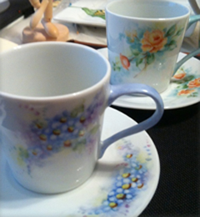Fostering Resilience Through Art for Children Who Have Experienced Trauma
Presenter: Dr. Donalyn Heise
How can art teachers collaborate with community to create meaningful art programs for fostering resilience in youth who are considered at risk, impoverished, homeless, or living in crisis?
Give up efforts to succeed? Engage in defiant rebellion? Exhibit Calloused thinking? Involved with alcohol or drugs? Self-abuses? Keeps other people at bay? Are hostile or aggressive? Bullies others? Are truant or tardy? Ridicules others? Learn a strengths or asset based approach to fostering resilience in children who have experienced trauma.
What can teachers do?
Teachers can provide effective leadership, empowering students by giving them choices, engaging them in authentic learning experiences and collaborative community art-based initiatives focusing on real life issues. By understanding the characteristics of resiliency, teachers who are advocates for at-risk youth can help students avoid the cycle of failure and low expectations that can lead to adverse outcomes.
This interactive workshop includes:
- Trauma defined with statistics.
- Introduction and rationale for resilience and how it applies to teaching art to diverse populations.
- Identification of protective factors that arts education provide that foster resilience in individuals and communities best practices for meaningful learning in the arts that is built on current research and aligned with academic standards.
- Hands-on art making using resilience framework.
- Challenges and successes of exemplary art programs will be shared, including art in formal and informal settings.
For more information, contact Dr. Donalyn Heise
Cups for Cancer
An intergenerational community art project designed to improve the life of individuals and community through empowerment, empathy and healing through art. Participants explore healthy lifestyles, brainstorm healing words and design inspirational symbols. Using a take one give one approach, participants will work with professional artists and art educators to learn the ancient art of china painting and will paint cups, one to keep and one to donate to someone facing the challenges of cancer.
Program Coordinator: Dr. Donalyn Heise
Goal(s): Improve the life of individuals and community and promote healing through art.
Outcomes:
1. Increase access to art for underserved individuals
2. Increase empathy, compassion and social responsibility
3. Enhance healthy lifestyles through awareness, education and art
4. Foster Resilience in individuals sometimes considered at-risk by increasing protective factors
5. Dissemination of effective model of art for healing and community health
Fosters Resilience in individuals by increasing protective factors:
Mastery — Access to art for underserved populations and opportunities to work with professional artists and educators to master the concepts, skills and techniques for quality art.
Positive Sense of Self — individuals create works of art that they are proud of and through giving, establish their role in community.
Social Connectedness — individuals connect with others with differing experiences and challenges and develop awareness and empathy for others.
Problem Solving — individuals engage in creative problem solving and critical thinking through the disciplines of art.
Dr. Donalyn Heise is Associate Professor of Art Education at the University of Memphis, and has been a porcelain artist and educator for more than 30 years.Donalyn Heise is a visual artist and educator with over 24 years teaching experience. She learned the ancient art of china painting as a teenager and has been painting ever since. Her work has been selected for juried art exhibitions at state and national competitions. Residencies include a variety of media, including china painting, working with polymer clay, drawing, painting and collaborative artmaking. Residencies focus on using art for meaningful interdisciplinary learning that helps us discover who we are and our relationship to our community. Themes include empathy, art for healing, individual and community assets, resiliency through art, and service learning.
For more information, contact Dr. Donalyn Heise


